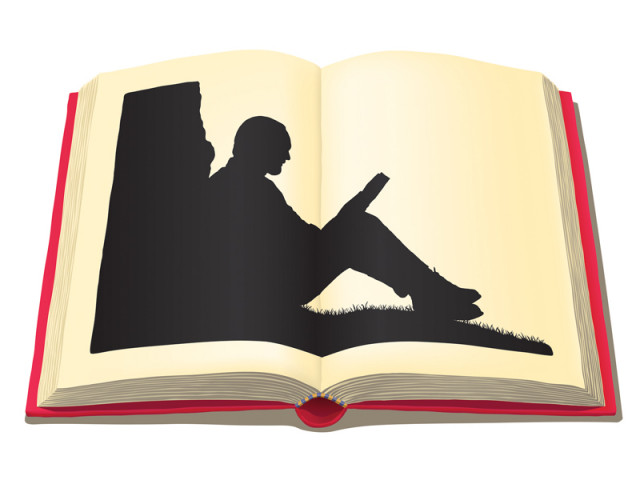Because novel readers are more socially intelligent
Narrative-fiction develops theory of mind.

Narrative-fiction develops theory of mind.
By the time we’re young adults, we’ve all intuited it to some degree: people who’re ardent readers of fiction seem to have the ability to engage with others in a manner that is completely lost on non-readers. A teenage boy-girl sibling combo might evidence a situation where the boy, whose extra-curricular life is dominated by sports, finds himself completely lost as he watches his fiction-loving sister routinely blend in with ease with both older contemporaries and adults at family gatherings, even having the occasional poignant conversation with a great-aunt or grandmother.
For many of us thus, it would be highly fitting to know that a stream of research coming from the psychology departments in York University and University of Toronto in Canada is evidencing that fiction-reading leads to one being more empathising and socially intelligent.
How come?
One of the two principal figures leading this research is psychologist Keith Oatley (University of Toronto.) His main argument, found in a sequence of articles he wrote for the Greater Good Science Center at Berkeley University, A Feeling for Fiction and Changing our Minds, is that reading fiction develops in one the ability to construct a map of the thoughts and feelings that are occurring in the minds of other people. This is what developmental psychologists refer to as ‘theory of mind.’
When one identifies with the emotions that are materialising in another person, it is called empathy, one of the core aspects of emotional intelligence. According to Oatley, fiction – and in particular narrative – is an exercise in empathy. In reading narrative, we join ourselves emotionally with the protagonist, in a manner experiencing his or her emotions as they navigate through the struggles in their lives. The overarching importance is in the fact that we, the reader, get to view situations from the articulated points-of-view of others.
Additionally, we lend ourselves to situations we have never yet experienced, understand the ways of people completely peculiar to us, and thus begin to acquire familiarity with such novelties that we may later face in life; novelties we would otherwise be helpless to understand except through one awkward effort at a time, usually exposing us to great friction with the unfamiliar environment first.
In other words, reading provides us with: “the ability to sensitise…to the emotions of other people, transcending the limits of our own experiences and perspective” (Oatley.)
Oatley also refers to a range of philosophies that speak of virtues of reading that augment his findings. The primary case, coming from both Indian philosophy and Western tradition, is that fiction allows us to immerse ourselves in a setting and appraise the circumstances therein, as well as the feelings of the characters involved and their social implications, without the self-interested and pre-meditated frame of mind that one would have in real life. Oatley refers to Adam Smith’s Theory of Moral Sentiments, in which Smith extols reading for its ability to make one an “impartial spectator” in other people’s lives. As such, in reading, we view the injustices that we commit, or are victims or witnesses to, in a new light – one that is free of the self-preservation biases that exist when these experiences happen to us in reality.
The test
So with all the thunder surrounding fiction’s ability to engage the ‘theory of mind’, the hypothesis was finally put to the test. Studies confirmed that fiction readers have better social abilities – they score substantially better on tests involving gauging other people’s emotions from photographs and also do somewhat better at drawing conclusions about others’ lives after watching them interact.
So while Oatley has brought exhaustive detail to the matter, the central theme remains quite straightforward: fiction is about the challenges that individuals face as they navigate through the social world. As such, reading fiction gives one expertise in identifying with the struggles that manifest in the lives of others.
For those of us who are game, that has the most profound richness for our interactions with our family, friends and co-workers and fellow citizens.
The author is the head of Scholars by Profession, a local research-initiative. Find out more at www.facebook.com/scholarsbyprofession
Published in The Express Tribune, March 11th, 2013.
Like Life & Style on Facebook for the latest in fashion, gossip and entertainment.



















COMMENTS
Comments are moderated and generally will be posted if they are on-topic and not abusive.
For more information, please see our Comments FAQ